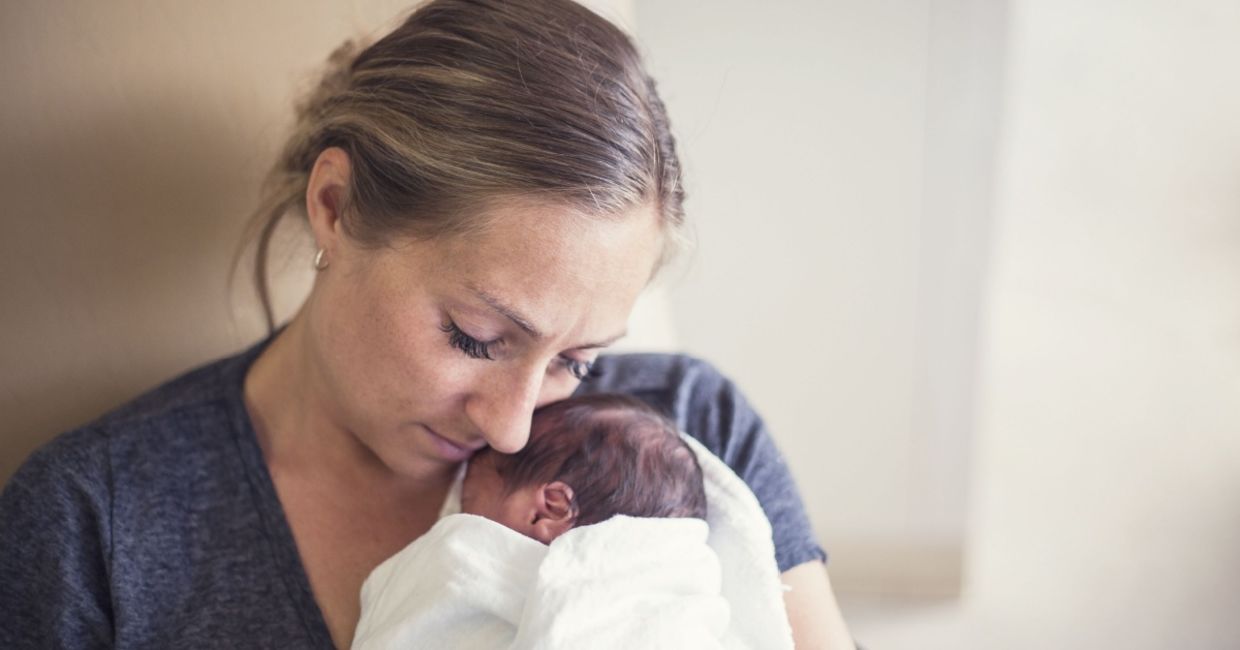
(Brocreative / Shutterstock.com)
Starting life as a preemie and coming from the comforts of the womb into the stressful environment of an incubator is not an easy transition. That’s why hugging and cuddling these newborns is a way to calm and help these babies thrive.
“Human touch is more powerful than people realize. When preemie babies are held, they feel secure and loved, and it also helps them to grow and recover from their physical problems,” Grace Hill, a baby hugger at the neonatal unit of UCI Health said in a blog from the medical center. “It’s satisfying to know I’ve played some small part in such a tiny person's life.”
This human touch helps these tiny babies with their social, emotional, and physical development, stressed UCI Health. Therapeutic touch can even improve weight gain and help these little ones go home faster.
Hug therapy in Argentina
Touch is so vital to these little one’s development that a hug therapy initiative was started in a public maternity hospital in the Argentinian city of Córdoba, reported El Pais. Volunteer huggers come to the hospital to give this gift of touch to premature babies whose mothers are absent for various reasons.
There are 50 volunteers at the Provincial Maternity Hospital of Córdoba, 49 are women and there is one man, who donate their time to the preemies. There are more than 200 applicants on a waiting list.
“I want [the babies] to be certain that, since they were born, they’ve been loved and accepted. It’s amazing how they are, they have such a desire to live,” Irma Castro, 60, a volunteer hugger told El Pais. Castro, who is a retired teacher, has been a volunteer for two years.
While most preemies are in intensive care in an incubator for 12 days, some can be in one for a lot longer, depending on their condition. At the maternity hospital, there are 1,500 premature babies out of the approximate 5,200 babies born each year. Around 15 percent of these infants need hug therapy and the mother’s consent is required.
The hug therapy really helps to calm and soothe the babies. “When you take the baby, you can see that their hands are clenched, but then they relax and their heart rate drops,” said the doctor who heads the neonatal department.
When a baby cannot leave the incubator because IV lines or tubes cannot be removed, the volunteers reach in and hold the baby’s hand or rest their hand on the child’s legs or chest.
“You are filled by feeling how — in that small body — there’s so much desire to live. There’s an attachment to how beautiful life is,” Castro said.
Healing through hugs
The babies are cuddled for two hours after they are fed and changed. The nurses guide the volunteers who take the little ones out of their incubators following a specific protocol. Then the babies are rested on the volunteers chests.
If a parent comes, the babies are immediately given over to them. The volunteers are a substitute when parents are not available.
Marcela Mancardo, a 59-year-old volunteer said that the first baby she hugged didn’t have any contact with her mother due to illness. The baby went straight from the delivery room into the incubator. “I was the first to hug her: it was my first time as a volunteer. It was an explosion of love. I cried at home,” she said.
The work of the volunteer huggers has become better known and in 2023 they were given an award and publicly recognized by the city for the work they do. It is important to show the community that if you cannot be with your baby all the time, there are caring people who will help. The maternity hospital is there to help families with both medicine and a community of loving affection.
YOU MIGHT ALSO LIKE:
Mom Opens Special Hair Salon for Parents of Preemies
These Crocheted Octopuses Are Changing the Lives of Preemies
Girl Scout’s Service Project Collected Books to Read to Preemies







